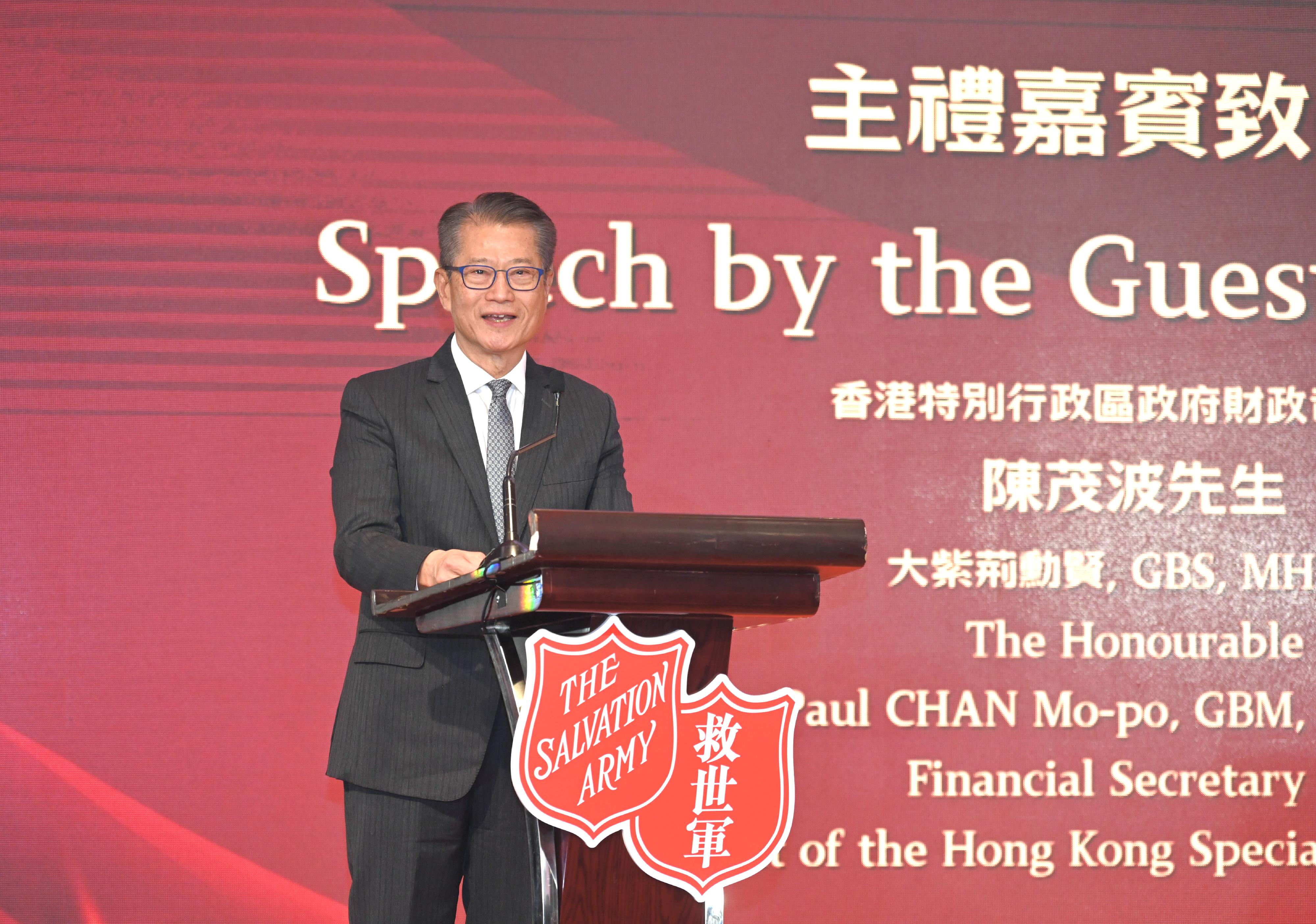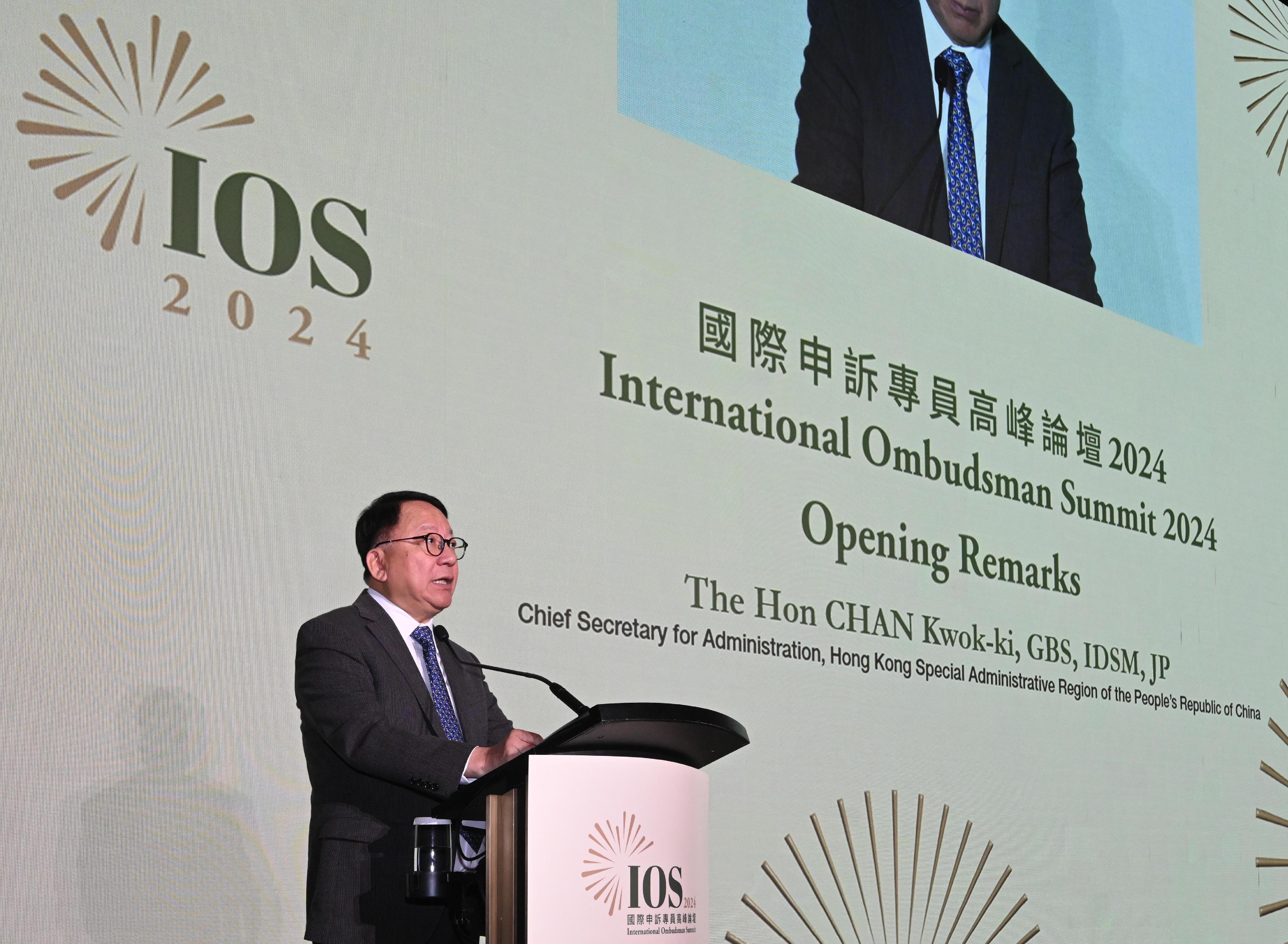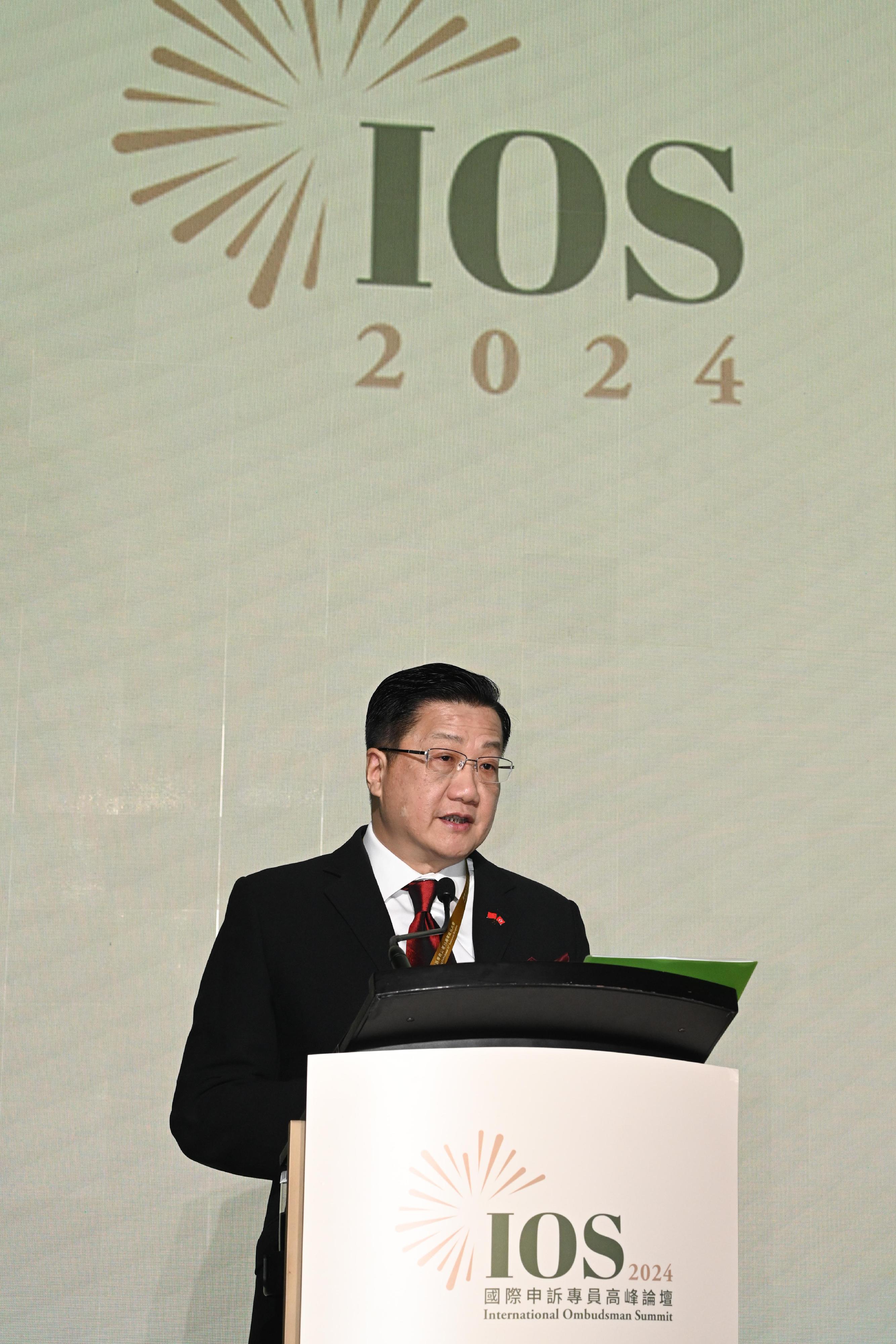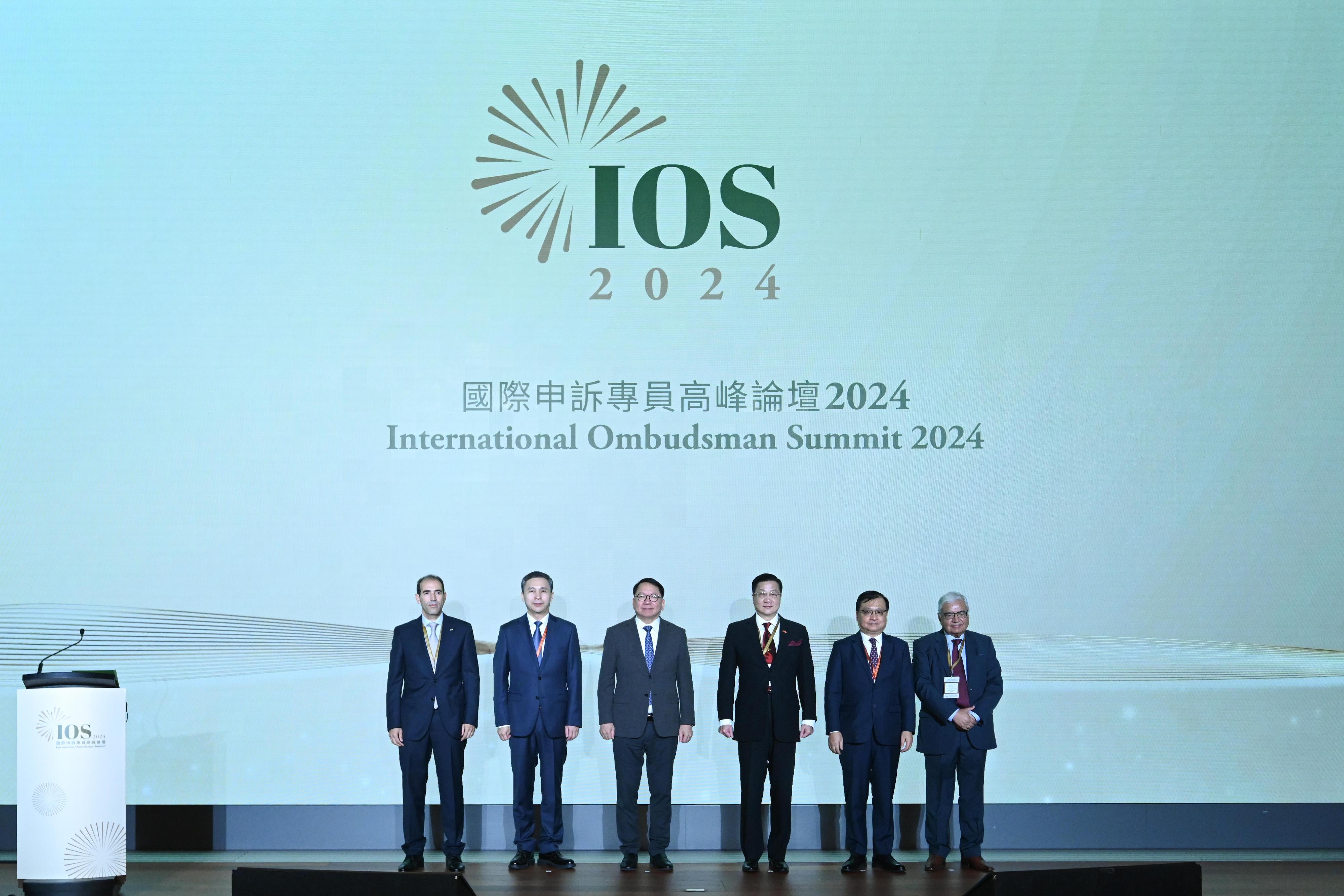A wet November with three tropical cyclone episodes
November 2024 was characterised by the successive strikes of tropical cyclones Yinxing, Toraji and Man-yi at the end of the typhoon season of Hong Kong, necessitating the issuance of tropical cyclone warning signals for these three episodes, the first time in November since 1946. With a stronger than normal cyclonic flow in the lower atmosphere over the coast of southern China, the month was also cloudier and wetter than usual. The mean amount of cloud in the month was 71 per cent, around 13 per cent above the normal of 58 per cent. The monthly total rainfall recorded at the Hong Kong Observatory was 194.1 millimetres, about five times the November normal of 39.3 millimetres and the second highest on record for November, just after the 224.2 millimetres recorded in November 1914. The accumulated rainfall up to November this year was 2 309.7 millimetres, a deficit of around 4 per cent compared with the normal of 2 402.4 millimetres for the same period. Despite the rather gloomy and rainy conditions, the month was warmer than usual with the mean temperature of 23.0 degrees, 0.8 degrees above the normal and one of the ninth highest on record for November. Together with the higher than usual temperatures in September and October, the autumn of this year was much warmer than usual. The mean temperature of 26.5 degrees and mean minimum temperature of 24.5 degrees were both the highest on record for the same period. Moreover, the mean maximum temperature of 29.2 degrees was one of the highest on record for the same period.
Under the influence of a dry northeast monsoon, the weather of Hong Kong was fine and dry on the first day of the month. With plenty of sunshine, temperatures at the Observatory rose to a maximum of 30.6 degrees that afternoon, the highest of the month. With a band of clouds covering the coastal areas of Guangdong, local weather turned cloudier in the following few days with a few light rain patches on November 3 and 4. While there were still a few rain patches at first on November 5, the weather turned dry, with sunny periods during the day with the arrival of a replenishment of the northeast monsoon. Under the prevalence of the dry northeast monsoon, it was generally fine during the day on November 6 and 7 apart from a few light rain patches in the morning.
Meanwhile, an area of low pressure over the western North Pacific to the east of the Philippines intensified into a tropical depression on November 3 and was later named Yinxing. It moved northwestwards towards the northern part of Luzon and progressively intensified into a super typhoon in the following four days. After skirting past the northern part of Luzon, Yinxing tracked generally westwards across the northern part of the South China Sea on November 8 and 9. It then turned to move southwestwards over the seas southeast of Hainan Island and weakened gradually on November 10 and 11. Yinxing finally weakened into an area of low pressure over the coastal waters of central Vietnam on November 12.
Moreover, another area of low pressure over the seas east of the Philippines progressively intensified into a tropical storm and was named Toraji on November 9. It then moved west-northwestwards towards Luzon and progressively intensified into a typhoon in the following two days. After moving across Luzon, Toraji entered the central part of the South China Sea on the afternoon of November 11. It then tracked generally northwestwards towards the coast of Guangdong on November 12 and 13, and weakened gradually. Toraji turned to track slowly westwards across the seas south of Hong Kong on the morning of November 14. It finally weakened into an area of low pressure over the seas south of Shangchuan Dao on the morning of November 15.
Furthermore, an area of low pressure over the western North Pacific progressively intensified into a tropical storm and was named Man-yi on November 9. It moved towards Luzon in the following seven days and intensified into a super typhoon on November 16. After moving across Luzon on November 17, Man-yi tracked generally west-northwestwards across the northern part of the South China Sea the next day and weakened. Man-yi gradually turned to track southwestwards on the afternoon of November 19 and finally weakened into an area of low pressure over the seas southeast of Hainan Island on the morning of November 20.
While the weather of Hong Kong was fine and dry during the day on November 8, with the approach of Yinxing, it turned cloudy with isolated showers at night. Under the combined effect of the northeast monsoon and Yinxing, the weather of Hong Kong was mainly cloudy with a few showers on November 9 and 10. Strong winds affected many places of the territory on the night of November 9 and the next morning. With Yinxing departing from Hong Kong, local winds moderated gradually during the day on November 10.
While there were a few isolated showers at first on November 11, the weather turned mainly fine on the afternoon and the next day. With the approach of Toraji, the weather of Hong Kong deteriorated again with a few squally showers on November 13. Local winds also strengthened gradually in the afternoon. As Toraji was expected to come rather close to Hong Kong with its associated gale force winds posing a threat to the territory, the Observatory issued the No. 8 Gale or Storm Signal on the night of November 13, the latest issuance of the No. 8 Gale or Storm Signal during a year since 1946. Strong to gale force northeasterly winds affected most parts of the territory at first on November 14. The outer rainbands of Toraji also brought squally showers to Hong Kong on that day. With the weakening of Toraji, local winds moderated gradually later on November 14. Under the influence of the remnants of Toraji, the weather remained cloudy with occasional rain on November 15. More than 30 millimetres of rainfall were generally recorded over the territory, and rainfall even exceeded 70 millimetres over parts of Sha Tin and Tai Po Districts on November 14 and 15.
It was mainly cloudy with a few showers on November 16 and 17, with heavier showers in some areas on the night of November 16. Around 10 millimetres of rainfall were recorded over many places of the territory and rainfall even exceeded 30 millimetres over the eastern part of Hong Kong Island and Kowloon East. A fresh to strong northeast monsoon affected Hong Kong on November 18 and there were sunny intervals. There were also a few light rain patches with the approach of Man-yi. Under the combined effects of a spring tide, northeast monsoon and Man-yi, water levels in Hong Kong were particularly high on the night of November 18. The water levels of Quarry Bay, Tai O and Tai Po Kau reached 3.36, 3.36 and 3.52 metres above the Chart Datum respectively and they were all the highest on record for November. Minor flooding occurred in some low-lying areas including the banks of Shing Mun River, Lei Yue Mun, Tai O and Sha Tau Kok.
Under the influence of the northeast monsoon and a broad band of rain-bearing clouds, the weather was gloomy and rainy on November 19 and 20. The rain was heavier at first on November 20, and more than 50 millimetres of rainfall were recorded over most parts of the territory. There were still a few rain patches at first on November 21. With the band of clouds covering the coast of southern China thinning out gradually, there were sunny intervals that afternoon and on November 22. Affected by a fresh to strong easterly airstream, the weather was mainly cloudy with a few rain patches from November 23 to 25. A cold front moved across the coastal areas of Guangdong in the small hours on November 26. Locally, while there were a few showers at first, under the influence of the associated dry northeast monsoon, the weather turned fine and dry during the day and remained so till the end of the month. It was cool in the morning and at night on the last three days of the month, with temperatures at the Observatory dropping to a minimum of 16.5 degrees on the morning of November 30, the lowest of the month. Temperatures were appreciably lower in the New Territories.
Five tropical cyclones occurred over the South China Sea and the western North Pacific in November 2024.
Details of issuance and cancellation of various warnings/signals in the month are summarised in Table 1. Monthly meteorological figures and departures from normal for November are tabulated in Table 2.




